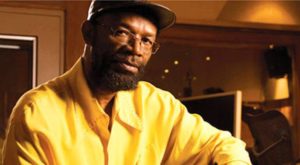|
Getting your Trinity Audio player ready...
|
Reading Time 2 mins
April 7, 2022
A while back, someone posted online that to his chagrin, he realized that the singer Frankie Beverly wasn’t known throughout the United States and was merely relegated to superstar status in the Black community. People in the comments section took umbrage at this slight. Many drew similarities to unseasoned food and no knowledge of ‘the (cocoa and shea) butters. However, folks rallied, seemingly bereft of the millions who were denied decades of the artist’s music. In my mind, this was another example of the uniqueness of Black culture, where at cookouts and parties “Before I Let Go” is given the same reverence and communal participation as shouting “hallelujah” in a Baptist church.
So, recently, while out driving, I put in a CD of one of my favorite reggae artists. I was immediately transported back to my youthful days in Brooklyn. I was happy! I jammed to the pulsating reggae beat and sang aloud. Then I wondered, was this another Frankie Beverley-like situation? Did people outside of the Caribbean diaspora know of the phenom that is Beres Hammond?
Despite the differing accents or pronunciations, people of the English-speaking Caribbean call him “Beres”. To the young upstarts, he’s “Uncle Beres”. A Jamaican singer, performing for almost 50 years, his fans follow him faithfully wherever he appears. His lyrics and reggae rhythms complement each other seamlessly. His sound is singularly Caribbean, yet his themes are universal. The songs are uncannily nostalgic and evoke feelings of immense joy. They are reminiscent of home, of liming, of level vibes where everyone is unabashed in their intentions to have a good time, if only for a night or a sun-filled afternoon.
Beres has an affinity for showcasing masculine vulnerability and the importance of second chances. His songs are deceptively down-to-earth and tell of the ordinary person’s experiences, yet his mastery of craft is evident. He gives insight into life and living; often leaning to the Rastaman vibrations with his conscious lyrics, but even then one can’t help but move to his rhythms. No fete or house party could be deemed a success without at least one sing-a-long to Beres. Children born in the United States to Caribbean parents grew up in the ’80s and ’90s with his music as the soundtrack to their parents’ weekend chores. His song, “Show It Off” was the go-to inspiration for my daughter during the throes of her adolescence.
In the same way, Nomcebo, Burna Boy, Wizkid, Tems, and other artists in the African diaspora have enriched the musical canon of the world with their Afrobeats, Beres is deserving of a wider audience. Sure people’s choice of music is highly subjective, as we all have varied tastes. However, in these periods of angst and uncertainty, listening to the music of Beres can be a joyful exploration.

